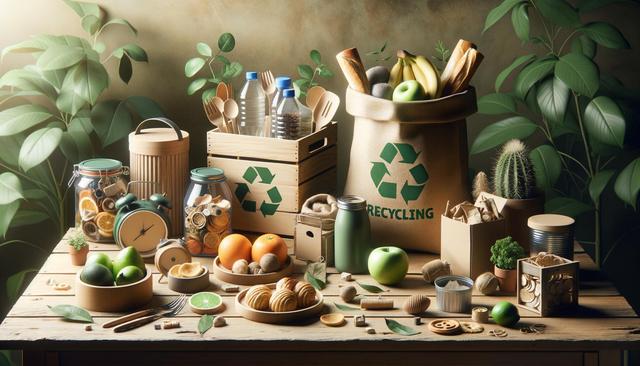
Why Recycling Matters: A Closer Look at Sustainable Practices
Understanding the Fundamentals of Recycling
Recycling is the process of converting waste materials into new products to prevent the unnecessary consumption of fresh raw resources. This practice helps reduce energy usage, decrease air and water pollution, and lower greenhouse gas emissions. Materials commonly recycled include paper, cardboard, glass, plastics, and metals. The basic aim is to extend the lifecycle of materials and reduce the volume of waste that ends up in landfills or incinerators. While recycling may seem straightforward, it involves a complex system of collection, sorting, processing, and manufacturing that requires community participation and infrastructure support.
There are three main types of recycling: primary (or closed-loop), secondary, and tertiary. Primary recycling involves turning a product back into the same product, such as recycling aluminum cans into new cans. Secondary recycling changes products into different items, like plastic bottles transformed into synthetic textiles. Tertiary recycling uses chemical processes to break down materials and is often used for more complex waste types. Understanding these categories helps individuals and organizations make informed decisions about their waste and consumption habits.
Environmental Benefits of Recycling
Recycling significantly reduces the environmental impact of waste. By reusing materials, we conserve natural resources such as timber, water, and minerals. The reduction in the need to extract and process raw materials also leads to less disruption of ecosystems and decreased pollution levels. For instance, recycling metals reduces the need for mining, which is energy-intensive and often environmentally damaging.
Some key environmental benefits of recycling include:
- Lower greenhouse gas emissions due to decreased manufacturing energy needs
- Conservation of finite resources like fossil fuels and minerals
- Reduction in landfill usage and the associated leachate and methane gas production
- Improved air and water quality from reduced industrial waste
These benefits contribute to improved public health and help mitigate the impacts of climate change. When communities actively recycle, they support a circular economy that prioritizes sustainability and long-term ecological balance.
Economic Impacts of Recycling
Aside from environmental advantages, recycling also plays a role in economic development. It creates jobs in the collection, processing, and resale of recycled materials. According to various studies, recycling industries employ thousands of people and generate significant revenue annually. These sectors include waste management, materials recovery facilities, and manufacturing using recycled inputs.
Key economic contributions of recycling include:
- Job creation in both public and private sectors
- Revenue generation through the resale of recyclable materials
- Cost savings for manufacturers using lower-cost recycled inputs
- Reduced municipal waste management expenses
Moreover, recycling programs can lead to innovation in product design and material science, encouraging companies to develop more sustainable products and packaging. This can open up new business opportunities and markets, especially in regions where environmental responsibility is a key consumer concern.
Challenges and Misconceptions About Recycling
Despite its many benefits, recycling is not without challenges. One common misconception is that all plastics are recyclable. In reality, only certain types of plastics can be effectively processed, and others may contaminate recycling streams. Another issue is ‘wishcycling’—when well-meaning consumers place non-recyclable items in recycling bins, hoping they’ll be reused. This often creates inefficiencies and raises costs for recycling facilities.
Some of the main challenges include:
- Contamination of recyclable materials
- Limited recycling infrastructure in certain areas
- Fluctuating market demand for recycled materials
- Public confusion about recycling guidelines
Addressing these issues requires better public education, investment in advanced sorting technologies, and clearer labeling on products. Collaboration between governments, businesses, and consumers is crucial to improving the effectiveness and efficiency of recycling systems worldwide.
How Individuals Can Make a Difference
Everyone has a role to play in improving recycling outcomes. From properly sorting waste at home to participating in community clean-up events, individual actions can collectively make a significant impact. Understanding local recycling rules is essential, as these can vary greatly depending on the municipality. Avoiding contamination by rinsing out containers and not placing non-recyclable items in the bin is a simple yet powerful habit.
Here are a few practical steps individuals can take:
- Educate yourself on what is recyclable in your community
- Reduce overall consumption and reuse items when possible
- Purchase products made with recycled materials
- Support policies and businesses that promote sustainable practices
By becoming more conscious consumers and responsible citizens, individuals help create a ripple effect that encourages broader societal and environmental change. Small efforts, when multiplied across communities, can lead to substantial long-term benefits.


